At the top of the Thai Money Mountain

In this special report, Maxmilian Wechsler looks at Thailand’s wealthiest individuals and how they own almost half the country’s assets – then focuses on the poorest members of society and how they rely on loan sharks to survive
The combined wealth of Thailand’s “50 Richest” is half a trillion baht greater than the national budget
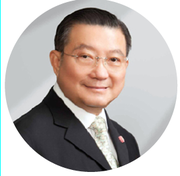
3. CHAROEN SIRIVADHANABHAKDI
• Net worth: US$ 11.3 billion (369.51 billion baht)
• Source of wealth: Beverages, real estate, finances
Charoen Sirivadhanabkakdi, 70, is chairman of Fraser & Neave Ltd and also owns Pantip Plaza in Bangkok, Hotel Plaza Athénée in Manhattan and other hotels in Asia, the United States and Australia, plus residential, commercial and retail buildings in Singapore and Thailand.
Background: Like most Thai tycoons, Charoen Sirivadhanabkakdi is ethnic Chinese, from a family of 11 children who migrated from southern China. His father was a fried mussel vendor in Bangkok’s Songwad district, and Charoen left school when he was nine years old to contribute to the meager family finances.
• Net worth: US$ 11.3 billion (369.51 billion baht)
• Source of wealth: Beverages, real estate, finances
Charoen Sirivadhanabkakdi, 70, is chairman of Fraser & Neave Ltd and also owns Pantip Plaza in Bangkok, Hotel Plaza Athénée in Manhattan and other hotels in Asia, the United States and Australia, plus residential, commercial and retail buildings in Singapore and Thailand.
Background: Like most Thai tycoons, Charoen Sirivadhanabkakdi is ethnic Chinese, from a family of 11 children who migrated from southern China. His father was a fried mussel vendor in Bangkok’s Songwad district, and Charoen left school when he was nine years old to contribute to the meager family finances.
“THAILAND’S 50 Richest” individuals and families are ranked annually on the Forbes website in order of their net worth. The latest list, published in June 2014, showed a combined wealth of US$97.2 billion, which comes to about 3.178 trillion baht. To put this in perspective, Thailand’s national budget for the 2015 fiscal year is 2.575 trillion baht.
Heading the list for the first time is the Chirathivat family, owners of Central Group, with a net worth of $12.7 billion (415.29 billion baht), while the poorest chap in 50th position is Prateep Tangmatitham, a property developer worth a mere $305 million (9.97 billion baht). The total wealth of the 10 richest Thais and their families is $62.9 billion, about 80% of the 2015 national budget. According to Forbes, there are 26 people or families in Thailand with a net wealth exceeding US$1 billion.
Most of the richest Thais are of Chinese descent whose forebears migrated several generations back. Some were able to become super rich partly through affiliations with powerful government and military officers. Many women from ethnic Chinese business families married high-ranking civil servants to cement mutually beneficial relations. This has been going on for decades and is woven into the fabric of Thai high society.
It would be good to know how the total wealth of the remaining 69 million Thai citizens stacks up against those at the very top, but these figures are not readily available. A 2012 study by the National Economics and Social Development Board found that the top 0.1% own nearly half (46.5%) of the country’s total assets.
A 2009 report from the United Nations Development Programme says that while the wealth inequality gap in Thailand has shrunk in recent decades, the divide remains stark, as indicated by the ratio between the average income of the top fifth of households and the bottom fifth. “In societies which value egalitarianism, such as Japan and Scandinavia, the multiple is around 3-4. In the rest of Europe and North America, it is 5-8. Among Thailand’s Southeast Asian neighbours, the figure is around 9-11. In Thailand it is around 13-15,” the report said.
Forbes’ list of the country’s 50 wealthiest doesn’t take into account debts that may be owed to financial institutions within Thailand and abroad, but it is known that ordinary Thais are facing a heavy debt burden. According to www.countryeconomy.com, Thailand’s per capita debt in 2013 was $2,569, or 84,006 baht per person. The Bank of Thailand reported in July 2014 that in the second quarter of 2014 household debt stood at almost 10 trillion baht, about 83% of the Gross National Product.
Heading the list for the first time is the Chirathivat family, owners of Central Group, with a net worth of $12.7 billion (415.29 billion baht), while the poorest chap in 50th position is Prateep Tangmatitham, a property developer worth a mere $305 million (9.97 billion baht). The total wealth of the 10 richest Thais and their families is $62.9 billion, about 80% of the 2015 national budget. According to Forbes, there are 26 people or families in Thailand with a net wealth exceeding US$1 billion.
Most of the richest Thais are of Chinese descent whose forebears migrated several generations back. Some were able to become super rich partly through affiliations with powerful government and military officers. Many women from ethnic Chinese business families married high-ranking civil servants to cement mutually beneficial relations. This has been going on for decades and is woven into the fabric of Thai high society.
It would be good to know how the total wealth of the remaining 69 million Thai citizens stacks up against those at the very top, but these figures are not readily available. A 2012 study by the National Economics and Social Development Board found that the top 0.1% own nearly half (46.5%) of the country’s total assets.
A 2009 report from the United Nations Development Programme says that while the wealth inequality gap in Thailand has shrunk in recent decades, the divide remains stark, as indicated by the ratio between the average income of the top fifth of households and the bottom fifth. “In societies which value egalitarianism, such as Japan and Scandinavia, the multiple is around 3-4. In the rest of Europe and North America, it is 5-8. Among Thailand’s Southeast Asian neighbours, the figure is around 9-11. In Thailand it is around 13-15,” the report said.
Forbes’ list of the country’s 50 wealthiest doesn’t take into account debts that may be owed to financial institutions within Thailand and abroad, but it is known that ordinary Thais are facing a heavy debt burden. According to www.countryeconomy.com, Thailand’s per capita debt in 2013 was $2,569, or 84,006 baht per person. The Bank of Thailand reported in July 2014 that in the second quarter of 2014 household debt stood at almost 10 trillion baht, about 83% of the Gross National Product.
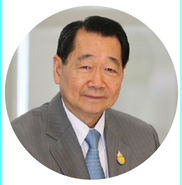
2. DHANIN CHEARAVANONT & FAMILY
• Net worth: US$11.5 billion (376.05 billion baht)
• Source of wealth: Agribusiness, food
The Forbes list drops Dhanin Chearavanont, 75, CEO & Chairman of Charoen Pokphand (CP) Group, to second place after being on top of the list for four consecutive years. However, a November 25 Bangkok Post newspaper article asserted that Dhanin is still the richest man in Thailand.
Background: The roots of the CP group date back to 1921, when 18-year-old Chia Ek Chor and his 10-year-old brother Chia Seow Whooy arrived in Thailand from Shantou in southern China, and began peddling vegetable seeds from a cart. Shortly thereafter, they opened a seed, fertilizer and insecticide trading business in Bangkok’s Chinatown. In the early years, Ek Chor spent much of his time establishing new markets in neighboring countries, leaving Seow Whooy to manage the Thai operation.
Following the communist takeover of China in 1949, the brothers decided to base their operations in Thailand, and adopted the surname Chearavanont. The CP Group has evolved into a conglomerate of hundreds of companies in many countries, including China.
• Net worth: US$11.5 billion (376.05 billion baht)
• Source of wealth: Agribusiness, food
The Forbes list drops Dhanin Chearavanont, 75, CEO & Chairman of Charoen Pokphand (CP) Group, to second place after being on top of the list for four consecutive years. However, a November 25 Bangkok Post newspaper article asserted that Dhanin is still the richest man in Thailand.
Background: The roots of the CP group date back to 1921, when 18-year-old Chia Ek Chor and his 10-year-old brother Chia Seow Whooy arrived in Thailand from Shantou in southern China, and began peddling vegetable seeds from a cart. Shortly thereafter, they opened a seed, fertilizer and insecticide trading business in Bangkok’s Chinatown. In the early years, Ek Chor spent much of his time establishing new markets in neighboring countries, leaving Seow Whooy to manage the Thai operation.
Following the communist takeover of China in 1949, the brothers decided to base their operations in Thailand, and adopted the surname Chearavanont. The CP Group has evolved into a conglomerate of hundreds of companies in many countries, including China.
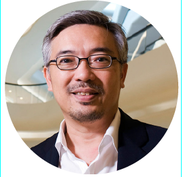
1. CHIRATHIVAT FAMILY
• Net worth: US$ 12.7 billion (415.29 billion baht)
• Source of wealth: Retail, real estate, hotels
The Chirathivat family jumped from second place in 2013 to top the list for the first time. The family-operated Central Group (CG) is Thailand’s leading department store retailer, and family members are involved in many other businesses. The most visible are Suthikiati Chirathiwat, vice-chairman of CG’s Supervisory Board, and Tod Chirathivat, now CEO of the Central Retail Corporation.
Background: Tiang Chirathivat (born Cheng Ni-Tiang) reportedly emigrated with his family from Hainan in China, where he was a rice farmer. He worked in his father-in-law’s store before opening his own small shop in Thonburi in 1928. In 1947, Tiang moved to a large site on Sri Phraya Road and established Central Trading, a landmark step for the Chirathivat family.
Anticipating a demand for foreign goods, Tiang stocked imported clothes, cosmetics, books, magazine and other periodicals. His business strategy proved to be very successful and he moved again to a building in Soi Oriental adjacent to the Oriental Hotel. In 1956, he opened the Central Department Store in the Wang Burapa district with his eldest son Samrit. The store was the first of its kind in Thailand and revolutionized the concept of retailing here. Among the innovations it offered was the introduction of fixed pricing to consumers accustomed to bargaining over every purchase.
• Net worth: US$ 12.7 billion (415.29 billion baht)
• Source of wealth: Retail, real estate, hotels
The Chirathivat family jumped from second place in 2013 to top the list for the first time. The family-operated Central Group (CG) is Thailand’s leading department store retailer, and family members are involved in many other businesses. The most visible are Suthikiati Chirathiwat, vice-chairman of CG’s Supervisory Board, and Tod Chirathivat, now CEO of the Central Retail Corporation.
Background: Tiang Chirathivat (born Cheng Ni-Tiang) reportedly emigrated with his family from Hainan in China, where he was a rice farmer. He worked in his father-in-law’s store before opening his own small shop in Thonburi in 1928. In 1947, Tiang moved to a large site on Sri Phraya Road and established Central Trading, a landmark step for the Chirathivat family.
Anticipating a demand for foreign goods, Tiang stocked imported clothes, cosmetics, books, magazine and other periodicals. His business strategy proved to be very successful and he moved again to a building in Soi Oriental adjacent to the Oriental Hotel. In 1956, he opened the Central Department Store in the Wang Burapa district with his eldest son Samrit. The store was the first of its kind in Thailand and revolutionized the concept of retailing here. Among the innovations it offered was the introduction of fixed pricing to consumers accustomed to bargaining over every purchase.
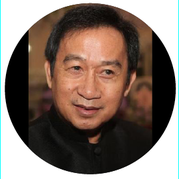
4. CHAROEN SIRIVADHANABHAKDI
• Net worth: US$ 11.3 billion (369.51 billion baht)
• Source of wealth: Beverages, real estate, finances
Charoen Sirivadhanabkakdi, 70, is chairman of Fraser & Neave Ltd and also owns Pantip Plaza in Bangkok, Hotel Plaza Athénée in Manhattan and other hotels in Asia, the United States and Australia, plus residential, commercial and retail buildings in Singapore and Thailand.
Background: Like most Thai tycoons, Charoen Sirivadhanabkakdi is ethnic Chinese, from a family of 11 children who migrated from southern China. His father was a fried mussel vendor in Bangkok’s Songwad district, and Charoen left school when he was nine years old to contribute to the meager family finances.
• Net worth: US$ 11.3 billion (369.51 billion baht)
• Source of wealth: Beverages, real estate, finances
Charoen Sirivadhanabkakdi, 70, is chairman of Fraser & Neave Ltd and also owns Pantip Plaza in Bangkok, Hotel Plaza Athénée in Manhattan and other hotels in Asia, the United States and Australia, plus residential, commercial and retail buildings in Singapore and Thailand.
Background: Like most Thai tycoons, Charoen Sirivadhanabkakdi is ethnic Chinese, from a family of 11 children who migrated from southern China. His father was a fried mussel vendor in Bangkok’s Songwad district, and Charoen left school when he was nine years old to contribute to the meager family finances.
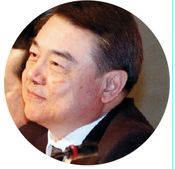
5. KRIT RATANARAK
• Net worth: US$ 5.1 billion
(166.77 billion baht)
• Source of wealth: Media, finances, real estate
Media magnate Krit Ratanarak, 68, got a boost to his wealth after Japan’s Mitsubishi UFJ Financial Group acquired a controlling stake in the Bank of Ayudhya, in which Krit holds 16%, to keep the 5th spot in the Forbes list.
Background: Krit Ratanark’s father was Chuan Ratanarak, who was born in 1920 as Bak Chuang Sai Lee in the Teowcheow district of southern China. After arriving in Bangkok in 1926, Chuan worked as child laborer at the river port in Chinatown and later on small barges (lighters) on the Chao Phraya River. He founded Bangkok Lighters Co. in 1959, and his fortunes flourished in part because of a friendship with the politically powerful Field Marshal Praphas Charusathien, who served as chairman of the company. In mid-1950’s Chuan began a profitable association with the Bank of Ayudhya.
• Net worth: US$ 5.1 billion
(166.77 billion baht)
• Source of wealth: Media, finances, real estate
Media magnate Krit Ratanarak, 68, got a boost to his wealth after Japan’s Mitsubishi UFJ Financial Group acquired a controlling stake in the Bank of Ayudhya, in which Krit holds 16%, to keep the 5th spot in the Forbes list.
Background: Krit Ratanark’s father was Chuan Ratanarak, who was born in 1920 as Bak Chuang Sai Lee in the Teowcheow district of southern China. After arriving in Bangkok in 1926, Chuan worked as child laborer at the river port in Chinatown and later on small barges (lighters) on the Chao Phraya River. He founded Bangkok Lighters Co. in 1959, and his fortunes flourished in part because of a friendship with the politically powerful Field Marshal Praphas Charusathien, who served as chairman of the company. In mid-1950’s Chuan began a profitable association with the Bank of Ayudhya.
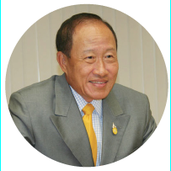
6. VANICH CHAIYAWAN
• Net worth: US$ 3.9 billion (127.53 billion baht)
• Source of wealth: Insurance, beverages
Vanich Chaiyawan, 82, is chairman of Thai Life, the country’s second-largest life insurer. His net worth increased dramatically after he sold a 15% stake to Japan’s Meiji Yasuda in 2013.
Background: Vanich Chaiyana began his entrepreneurial career at age 14 by selling cigarettes in Nakhon Pathom province, which he left six years later for Bangkok’s Chinatown. His first job in the city was for a commodities company where he worked until 1958 before setting up the New Vanich Partnership, whose main activity was trading rice. At about the same time he became an agent for Thai Pattaya Bank (later renamed and now merged with Krung Thai Bank), which provided financing for traders. His dealings with insurance companies led him to realize the potential of that sector and to buy Paiboon Insurance in the 1960s. In 1970, Vanich and close friend Kamron Tejapaibul acquired control of Thai Life Insurance Co.
• Net worth: US$ 3.9 billion (127.53 billion baht)
• Source of wealth: Insurance, beverages
Vanich Chaiyawan, 82, is chairman of Thai Life, the country’s second-largest life insurer. His net worth increased dramatically after he sold a 15% stake to Japan’s Meiji Yasuda in 2013.
Background: Vanich Chaiyana began his entrepreneurial career at age 14 by selling cigarettes in Nakhon Pathom province, which he left six years later for Bangkok’s Chinatown. His first job in the city was for a commodities company where he worked until 1958 before setting up the New Vanich Partnership, whose main activity was trading rice. At about the same time he became an agent for Thai Pattaya Bank (later renamed and now merged with Krung Thai Bank), which provided financing for traders. His dealings with insurance companies led him to realize the potential of that sector and to buy Paiboon Insurance in the 1960s. In 1970, Vanich and close friend Kamron Tejapaibul acquired control of Thai Life Insurance Co.
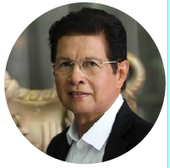
7. SANTI BHIROMBHAKDI & FAMILY
• Net worth: US$ 2.8 billion (91.56 billion baht)
• Source of wealth: Beverages
Santi Bhirombhakdi, 68, is the head of the family that made its fortune off the popular Singha and Leo beer brands. The family dropped one place from the 2013 list, and there are those who say this was due to a boycott of the beers in the Northeast of Thailand during the anti-government demonstrations. Santi’s niece, Chitpas, was a strong supporter of the anti-government faction, and it’s alleged that she made remarks that offended rural people loyal to the now deposed former government. Very little is known of Santi’s background.
• Net worth: US$ 2.8 billion (91.56 billion baht)
• Source of wealth: Beverages
Santi Bhirombhakdi, 68, is the head of the family that made its fortune off the popular Singha and Leo beer brands. The family dropped one place from the 2013 list, and there are those who say this was due to a boycott of the beers in the Northeast of Thailand during the anti-government demonstrations. Santi’s niece, Chitpas, was a strong supporter of the anti-government faction, and it’s alleged that she made remarks that offended rural people loyal to the now deposed former government. Very little is known of Santi’s background.
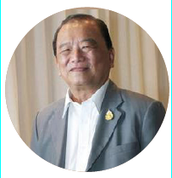
8. DR PRASERT PRASARTTONG-OSOTH
• Net worth: US$ 2.3 billion (75.21 billion baht)
• Source of wealth: Hospitals, airline
Dr Prasert Prasarttong-Osoth, 81, moved up from the 9th spot in 2013. The former surgeon is the founder of Bangkok Dusit Medical Services, Thailand’s largest private healthcare group. He is also founder & CEO of Bangkok Airways, Thailand’s largest privately owned airline.
Background: Prasarttong-Osoth Co. was set up in 1927 to produce and distribute traditional herbal medicines. Prasert inherited this enterprise and, while maintaining his status as a resident and instructor in surgery at Bangkok’s Siriraj Hospital, he concentrated on three main lines of business – hospitals, pharmaceuticals and aviation.
• Net worth: US$ 2.3 billion (75.21 billion baht)
• Source of wealth: Hospitals, airline
Dr Prasert Prasarttong-Osoth, 81, moved up from the 9th spot in 2013. The former surgeon is the founder of Bangkok Dusit Medical Services, Thailand’s largest private healthcare group. He is also founder & CEO of Bangkok Airways, Thailand’s largest privately owned airline.
Background: Prasarttong-Osoth Co. was set up in 1927 to produce and distribute traditional herbal medicines. Prasert inherited this enterprise and, while maintaining his status as a resident and instructor in surgery at Bangkok’s Siriraj Hospital, he concentrated on three main lines of business – hospitals, pharmaceuticals and aviation.
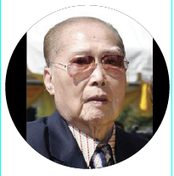
9.VICHAI MALEENONT & FAMILY
• Net worth: US$ 1.7 billion
(55.59 billion baht)
• Source of wealth: Media
Ranked at No. 8 in 2013, media magnate Vichai Maleenont, 94, saw his fortune decline somewhat as shares of his BEC World took a hit amid a floundering advertising market.
Background: Vichai Maleenont was born in Chachoengsao Province east of Bangkok. At the age of 17 he launched a mini-bus service to provincial destinations out of Bangkok’s Hualamphong railway station. The business grew rapidly, as did Vichai’s reputation. He began expanding his interests with a small 2-star hotel known as the Tong Hua, a grocery store and a gold shop, all in the Hualamphong area of Chinatown. However, these businesses were all completely destroyed during World War II. Undeterred, he briefly entered into the money changing business and operated a service station. In the early 1950s he became an agent for Thailand’s state lottery. Taking the proceeds from this lucrative business, Vichai entered the property development sector and capitalized on military connections to win contracts for residential housing.
• Net worth: US$ 1.7 billion
(55.59 billion baht)
• Source of wealth: Media
Ranked at No. 8 in 2013, media magnate Vichai Maleenont, 94, saw his fortune decline somewhat as shares of his BEC World took a hit amid a floundering advertising market.
Background: Vichai Maleenont was born in Chachoengsao Province east of Bangkok. At the age of 17 he launched a mini-bus service to provincial destinations out of Bangkok’s Hualamphong railway station. The business grew rapidly, as did Vichai’s reputation. He began expanding his interests with a small 2-star hotel known as the Tong Hua, a grocery store and a gold shop, all in the Hualamphong area of Chinatown. However, these businesses were all completely destroyed during World War II. Undeterred, he briefly entered into the money changing business and operated a service station. In the early 1950s he became an agent for Thailand’s state lottery. Taking the proceeds from this lucrative business, Vichai entered the property development sector and capitalized on military connections to win contracts for residential housing.
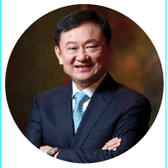
10. THAKSIN SHINAWATRA & FAMILY
• Net worth: US$1.7 billion (55.59 billion baht)
• Source of wealth: Investments
Former Prime Minister Thaksin Shinawatra, 65, ousted in 2006 coup remains in the 10th slot with his fortune valued approximately the same as in 2013. While Thaksin now lives in Dubai, the family owns a controlling stake of SC Asset, a property developer formerly owned by Shin Corporation.
Background: The roots of the family in Thailand reportedly date back more than 100 years to when Chinese migrant Ku-Cheng settled in Chantaburi Province in eastern Thailand. The family later moved to Chiang Mai, where the second generation established trade links with Burma and later entered the silk business. With Thaksin at the helm, the family expanded into other enterprises, most notably telecommunications.
• Net worth: US$1.7 billion (55.59 billion baht)
• Source of wealth: Investments
Former Prime Minister Thaksin Shinawatra, 65, ousted in 2006 coup remains in the 10th slot with his fortune valued approximately the same as in 2013. While Thaksin now lives in Dubai, the family owns a controlling stake of SC Asset, a property developer formerly owned by Shin Corporation.
Background: The roots of the family in Thailand reportedly date back more than 100 years to when Chinese migrant Ku-Cheng settled in Chantaburi Province in eastern Thailand. The family later moved to Chiang Mai, where the second generation established trade links with Burma and later entered the silk business. With Thaksin at the helm, the family expanded into other enterprises, most notably telecommunications.
*Source Forbes. All ages correct as of July 2014
Exchange rate at time of writing: US$1 = B32.70
Exchange rate at time of writing: US$1 = B32.70
In debt and desperate, poor people turn to loan sharks as their last hop
| WHENEVER a new government takes over, there are invariably pledges to crack down on loan sharks and help debtors. Promises and speeches are made, a few arrests make the headlines and maybe even some new legislation is passed, but nothing really changes. Loan sharks continue to operate as they have for decades, charging interest rates that are expressly prohibited by the law. The victims are mostly working people trying to make ends meet who find it difficult to get loans from financial institutions. But although the loan sharks offer temporary relief, the debtors’ financial problems are soon exponentially worse and they’re in over their heads just trying to make the interest payments. The problem is deeply-rooted in Thai society. Ironically, many people see the loan sharks as their last hope, especially in rural areas. Money lenders advertise vigorously to get new customers by posting flyers in various places targeting people in need of quick cash. What the flyers don’t say is that these lucrative illegal businesses charge sky-high interest rates, typically 20% a month, week or even a day. According to Commercial and Civil Code, the maximum interest allowed is 15% per annum. Here are some media headlines over the years telling of various government programs to help debtors: • “Projects help food vendors escape from loan sharks” (1999) • “AMLO seeks help for poor debtors” (2005) • “Helping poor settle debts” (2009) • “Loan sharks face government crackdown” (2010) The latest plan was announced by the Finance Ministry in November, following the self-immolation of Sangvean Raksaphet at a consumer protection office in October. Mrs Sangvean, 52, is a poor farmer from Lopburi who owed around 1.5 million baht to a local creditor after she was unable to keep up interest payments. She had put up her land as collateral. In an act of desperation, on October 16 she soaked her clothes with fuel and set herself on fire with a lighter at a People’s Service Centre opposite Government House while filing a plea for help. She was rushed to Vajira Hospital with burns over 50% of her body. The news was reported extensively in local and international media, sometimes accompanied by disturbing photos. This prompted promises of assistance from various government officials, including the Lopburi governor, the interior minister, the provincial police chief, senior military officers and even Prime Minister Prayuth Chan-ocha, who was in Italy at the time to attend an international summit. He instructed officials to help her. The creditor reportedly wrote off her debt, but that won’t heal the scars on Mrs Sangvean’s body. |
Using threats of violence and charging exorbitant interest rates, Thailand’s unofficial moneylenders are a growing menace
By Maxmilian Wechsler
By Maxmilian Wechsler
As a first step, the new government plan would register people in debt to “underground” lenders in a nationwide database. The authorities would then design a response to reduce the debt burden of the borrowers. Details have yet to be fleshed out and it’s not yet clear if this proposal, unlike its predecessors, will be made a government priority.
In recent months there have been warnings that the country’s household debt problems are starting to have a negative impact on the economy as a whole. The Bank of Thailand reported in July that in the second quarter of 2014 household debt stood at almost 10 trillion baht, about 83% of the Gross National Product. As regulated lending channels are closed to them, more people are turning to loan sharks to survive, which is a bit like a drowning man grabbing hold of an anchor to stay afloat.
How the media report predatory lending
In Pathum Thani on February 16, youths aged from 8 to 14, ten boys and six girls, were rescued from a gang of money lenders. The gang forced the boys to collect debts from debtors and would beat them up if they resisted. At least one girl was forced to work to pay off interest on her loan. Some of the youngsters were the children of parents who owned money to the loan sharks.
In July, police arrested five members of a ring that charged 20% interest a month and intimidated people who didn’t pay on time.
Six members of an alleged loan shark gang were arrested by joint police and military team in Udon Thani in October. They charged very high interest and intimidated borrowers who failed to make daily payments.
Also in October, a combined police and military team arrested three men in Banglamung (near Pattaya) who operated an illegal money lending business charging high monthly interest rates. The authorities seized, among other items, three handguns, ammunition and five motorcycles. The suspects were providing loans to customers in Pattaya and surrounding areas.
The alleged kingpin of a money lending gang was shot dead while driving his car in November. The wealthy victim was said to be outspoken and have many investments in Trang province.
Russian sharks in Pattaya
It is not only Thais running loan shark gangs – foreigners are involved as well. In 2013, Russian national Ayrat Khabiryanov was arrested in Pattaya and charged with predatory lending and working illegally in Thailand. He was alleged to be part of a gang lending to impoverished Russian compatriots and charging them extremely high interest rates.
The gang had no dealings with Thai nationals. Police seized passports that had been kept as collateral. There are unconfirmed reports that Russian loan sharks continue to operate in Pattaya. With so many Russians visiting and living there, it wouldn’t be surprising.
An official’s view
A law enforcement official with extensive knowledge of the illegal money lending business agreed to talk to The BigChilli on condition of anonymity. He said that most if not all Thai loan shark gangs are run by “mafia types” who are also involved in the illicit drug trade, casinos and other illegal activities. They operate in groups of five to eight people.
He said there is also a set of ‘Thai-Indian’ lenders who tend to be friendlier and more reasonable than the mafia types. They lend only small amounts, mainly to slum dwellers or other very poor people, who often use the money to buy relatively inexpensive items like fans or other electrical appliances. They charge very high interest which increases if payment isn’t made on time. They won’t threaten people, but if there is a problem collecting money they will hire gangsters to do it for them, said the official.
Some loan sharks attach leaflets advertising their services to electric polls, bus stops, on the walls, telephone booths and so on. They often give them away near pedestrian bridges such as the one near Central Plaza Bangna; some even distribute them at markets. The leaflets usually say something like: “If you need cash, call this number.” At the bottom there is a mobile number.
Photos taken at two separate locations in Bangkok show identical blue leaflets that say in Thai: “Express Cash” and “If you have no credit we can give you.” (See photos). Oddly enough, one of them was posted next to a leaflet giving information about Thonglor police station.
“There are loan sharks everywhere. The typical borrower might be a vendor or low-income villager. They turn to loan sharks because banks have rejected them for reasons like not having assets to use as collateral or not having a steady income. The average customer borrows from 3,000 to 10,000 baht and spends it on mobile phones or household appliances. Some people borrow more to pay off gambling debts or buy a motorcycle.
“When people come to borrow money, the loan sharks will copy their ID and sometimes come to see where the borrower lives. If the customer cannot pay them back they will use gangsters or ‘people in uniforms’ to threaten them. In order to repay high interest loans some people become criminals, for example drug dealers,” said the official.
“Loan sharks know they are running a risky business because the borrower may sometimes default and run. Therefore, they seek to increase their volume of customers. Debt collectors are employed by the loan sharks. They usually wear black motorcycle helmets and are paid a salary of 8,000 or 9,000 baht. They also usually receive 20% of the debts they collect from debtors who are late with their payments.
Normally, loan sharks prefer to lend to customers they know but some will accept strangers and do some vetting before granting a loan. This includes a visit to their home.
The official said calling the police if a loan shark resorts to intimidation is a waste of time because they know “influential people,” who may include local police. Bribes aren’t paid to government officers; instead they are hired to collect money or confiscate goods from the clients or their relatives and on top of what they are paid they will receive a ‘reward.’
In recent months there have been warnings that the country’s household debt problems are starting to have a negative impact on the economy as a whole. The Bank of Thailand reported in July that in the second quarter of 2014 household debt stood at almost 10 trillion baht, about 83% of the Gross National Product. As regulated lending channels are closed to them, more people are turning to loan sharks to survive, which is a bit like a drowning man grabbing hold of an anchor to stay afloat.
How the media report predatory lending
In Pathum Thani on February 16, youths aged from 8 to 14, ten boys and six girls, were rescued from a gang of money lenders. The gang forced the boys to collect debts from debtors and would beat them up if they resisted. At least one girl was forced to work to pay off interest on her loan. Some of the youngsters were the children of parents who owned money to the loan sharks.
In July, police arrested five members of a ring that charged 20% interest a month and intimidated people who didn’t pay on time.
Six members of an alleged loan shark gang were arrested by joint police and military team in Udon Thani in October. They charged very high interest and intimidated borrowers who failed to make daily payments.
Also in October, a combined police and military team arrested three men in Banglamung (near Pattaya) who operated an illegal money lending business charging high monthly interest rates. The authorities seized, among other items, three handguns, ammunition and five motorcycles. The suspects were providing loans to customers in Pattaya and surrounding areas.
The alleged kingpin of a money lending gang was shot dead while driving his car in November. The wealthy victim was said to be outspoken and have many investments in Trang province.
Russian sharks in Pattaya
It is not only Thais running loan shark gangs – foreigners are involved as well. In 2013, Russian national Ayrat Khabiryanov was arrested in Pattaya and charged with predatory lending and working illegally in Thailand. He was alleged to be part of a gang lending to impoverished Russian compatriots and charging them extremely high interest rates.
The gang had no dealings with Thai nationals. Police seized passports that had been kept as collateral. There are unconfirmed reports that Russian loan sharks continue to operate in Pattaya. With so many Russians visiting and living there, it wouldn’t be surprising.
An official’s view
A law enforcement official with extensive knowledge of the illegal money lending business agreed to talk to The BigChilli on condition of anonymity. He said that most if not all Thai loan shark gangs are run by “mafia types” who are also involved in the illicit drug trade, casinos and other illegal activities. They operate in groups of five to eight people.
He said there is also a set of ‘Thai-Indian’ lenders who tend to be friendlier and more reasonable than the mafia types. They lend only small amounts, mainly to slum dwellers or other very poor people, who often use the money to buy relatively inexpensive items like fans or other electrical appliances. They charge very high interest which increases if payment isn’t made on time. They won’t threaten people, but if there is a problem collecting money they will hire gangsters to do it for them, said the official.
Some loan sharks attach leaflets advertising their services to electric polls, bus stops, on the walls, telephone booths and so on. They often give them away near pedestrian bridges such as the one near Central Plaza Bangna; some even distribute them at markets. The leaflets usually say something like: “If you need cash, call this number.” At the bottom there is a mobile number.
Photos taken at two separate locations in Bangkok show identical blue leaflets that say in Thai: “Express Cash” and “If you have no credit we can give you.” (See photos). Oddly enough, one of them was posted next to a leaflet giving information about Thonglor police station.
“There are loan sharks everywhere. The typical borrower might be a vendor or low-income villager. They turn to loan sharks because banks have rejected them for reasons like not having assets to use as collateral or not having a steady income. The average customer borrows from 3,000 to 10,000 baht and spends it on mobile phones or household appliances. Some people borrow more to pay off gambling debts or buy a motorcycle.
“When people come to borrow money, the loan sharks will copy their ID and sometimes come to see where the borrower lives. If the customer cannot pay them back they will use gangsters or ‘people in uniforms’ to threaten them. In order to repay high interest loans some people become criminals, for example drug dealers,” said the official.
“Loan sharks know they are running a risky business because the borrower may sometimes default and run. Therefore, they seek to increase their volume of customers. Debt collectors are employed by the loan sharks. They usually wear black motorcycle helmets and are paid a salary of 8,000 or 9,000 baht. They also usually receive 20% of the debts they collect from debtors who are late with their payments.
Normally, loan sharks prefer to lend to customers they know but some will accept strangers and do some vetting before granting a loan. This includes a visit to their home.
The official said calling the police if a loan shark resorts to intimidation is a waste of time because they know “influential people,” who may include local police. Bribes aren’t paid to government officers; instead they are hired to collect money or confiscate goods from the clients or their relatives and on top of what they are paid they will receive a ‘reward.’
| The official said that the busiest period for loan sharks is usually before the new school terms in May or June, when parents are scrambling to find tuition money. “Most loan sharks have wealthy backers. They are rarely arrested, and to find evidence against them is often not easy. People are afraid to call police because this could cause conflicts with the loan sharks. They prefer to make an arrangement for repayment,” the official said. The period allowed for repayment could be 24 hours, 24 days, one month or longer. For short-term loans the client must return the principal and interest at the same time. If the amount is over 10,000 baht, a personal verbal guarantee from another family member may be needed unless it is an old customer. Guarantees like original title deeds or a car are usually required for large sums. With some types of loans the debtor may have months or years to pay back. Installments are collected daily unless another arrangement is agreed to. “The loan sharks prefer repayments to be made over a long period of time because they can charge more interest and make more money. |
“Often if a large amount is sought by the customer, a contract is inked, but it won’t say that cash was given but rather that some product was sold, like rice, and the debtor will pay in installments.”
The official said that every loan shark has their own set of rules for borrowing, interest rates and making payments. Sometimes after the debtor makes payments for a long time and then defaults the money lender won’t take any action. This depends on the money lender and it only happens after the principal has been recouped, usually several times over. However, many loan sharks are much more ruthless when the debtor defaults.
“Most debtors pay back on time, but some double the interest when the debtor cannot pay on time. If they still don’t pay, they may be watched in a very obvious way by officials. They will be aware they are being watched. Someone may take their photo. This tactic usually scares the debtor into finding some way to make a payment. If none of this works, the loan shark will send people, including officials, to their home to seize items like notebooks, electrical appliances, motorcycles or jewelry. If they can’t find anything of sufficient value they demand money from relatives,” said the official.
“Some loan sharks operate casinos. They will give credit to the gamblers, who might put up a car or motorcycle for collateral. If the gambler loses, the loan shark keeps the collateral until he is repaid, plus interest.”
The official also remarked that as part of the current clean-up campaign, late last year workers from the Bangkok Metropolitan Administration were seen removing all kinds of leaflets attached to electricity polls, billboards, buildings, bus stops and even attached to ATM machines.
The official said that every loan shark has their own set of rules for borrowing, interest rates and making payments. Sometimes after the debtor makes payments for a long time and then defaults the money lender won’t take any action. This depends on the money lender and it only happens after the principal has been recouped, usually several times over. However, many loan sharks are much more ruthless when the debtor defaults.
“Most debtors pay back on time, but some double the interest when the debtor cannot pay on time. If they still don’t pay, they may be watched in a very obvious way by officials. They will be aware they are being watched. Someone may take their photo. This tactic usually scares the debtor into finding some way to make a payment. If none of this works, the loan shark will send people, including officials, to their home to seize items like notebooks, electrical appliances, motorcycles or jewelry. If they can’t find anything of sufficient value they demand money from relatives,” said the official.
“Some loan sharks operate casinos. They will give credit to the gamblers, who might put up a car or motorcycle for collateral. If the gambler loses, the loan shark keeps the collateral until he is repaid, plus interest.”
The official also remarked that as part of the current clean-up campaign, late last year workers from the Bangkok Metropolitan Administration were seen removing all kinds of leaflets attached to electricity polls, billboards, buildings, bus stops and even attached to ATM machines.
| Looking for sharks Finding loan sharks wasn’t difficult, even without the flyers. Most street vendors in Nonthaburi and Phra Khanong as well as ladies of the night on Sukhumvit Road know where to find one or more. Two Thai women who had previously borrowed from underground money lenders volunteered to make visits to offices they knew of and relate their experiences to The BigChilli. Here are their accounts: Visit to loan shark #1 From the outside there’s nothing unusual about the two-storey townhouse in Nonthaburi that one loan shark has allegedly made his office for many years. When our undercover woman came to call there were three motorcycles parked outside, used by debt collectors. On the modestly furnished ground floor of the townhouse seven people, some of them debt collectors, were watching a DVD of a Chinese soap opera. They kept black helmets with shields on them nearby. They ride motorcycles to the debtors’ homes or workplaces or they might meet in a restaurant or other public place. This loan shark lends amounts from 3,000 baht to more than one million baht. Most clients borrow five or ten thousand baht. “He will lend to most people because the profit is high and he doesn’t care what the customers do with the money. Sometimes foreigners with Thai spouses take short-term loans, but normally he doesn’t lend to foreigners. Interest rates range from 20% to 60%, depending on the amount borrowed and the repayment period. The longer the repayment period, the more interest is charged,” said the woman. Visit to loan shark #2 The second moneylender, a woman, lives and works in a modest house inside Sukhumvit Soi 62. She is well known in the area which includes several slum communities and large apartments where poor people live. She lends between 2,000-5,000 baht to people she knows well. Local vendors can get a loan up to 10,000 baht. She lives in the house with her children and husband. You won’t see debt collectors hanging around, she calls them when needed. She charges 20% interest for loans with a repayment period of up to one month, the normal rate for most illegal lenders. Payments are collected daily, according to a regular schedule. If the debtor is a man, the collector will be a man, and if the debtor is a woman the collector will be as well. |
Customers must come to the house; she won’t go to see them. Normally only regular customers will get a loan. A stranger walking in will be refused unless accompanied by a known customer, who must make good on the loan if the borrower defaults. The woman copies both the borrower’s and the guarantor’s IDs.
Visit to loan shark #3
One of several loan sharks on Sukhumvit Soi 3 operates from a shop that is familiar to local sex workers and is open 24/7. Business is brisk and they don’t have to advertise. The woman in charge lends customers up to 10,000 baht. Payments are collected every day, usually 200 or 300 baht. The loans are for a short time only, usually up to ten days. The interest is 20% for loans with a repayment period up to one month. As is the case with the operation on Soi 62, a new customer must be introduced by someone she knows, and must act as a guarantor for the loan.

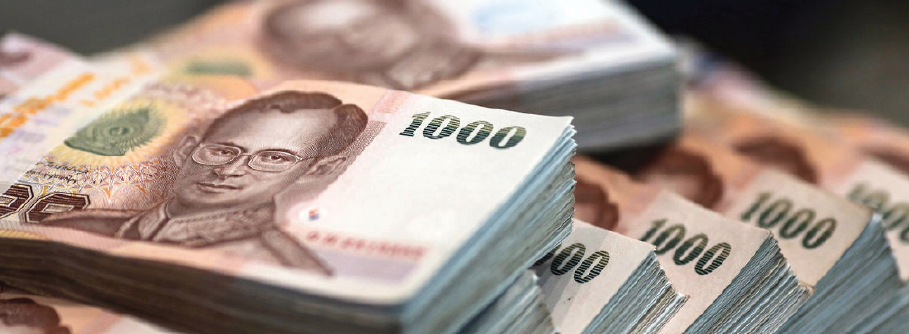

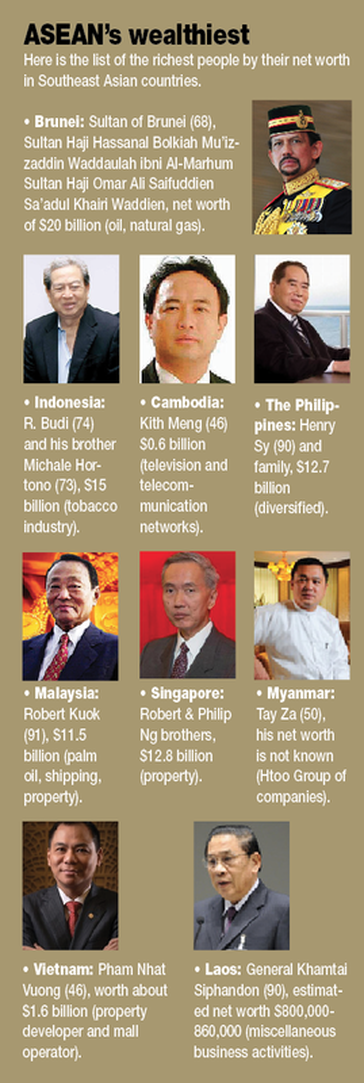
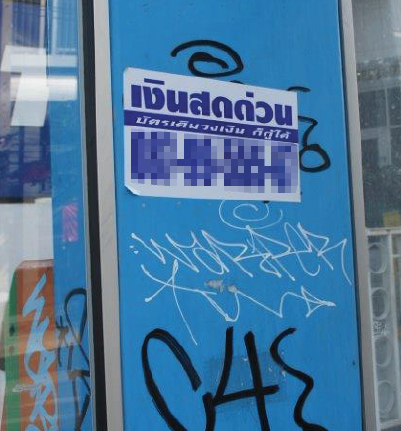
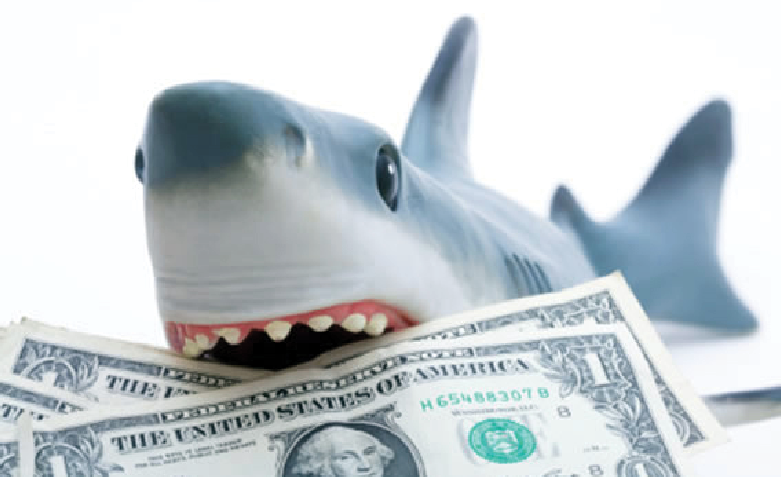

 RSS Feed
RSS Feed
















